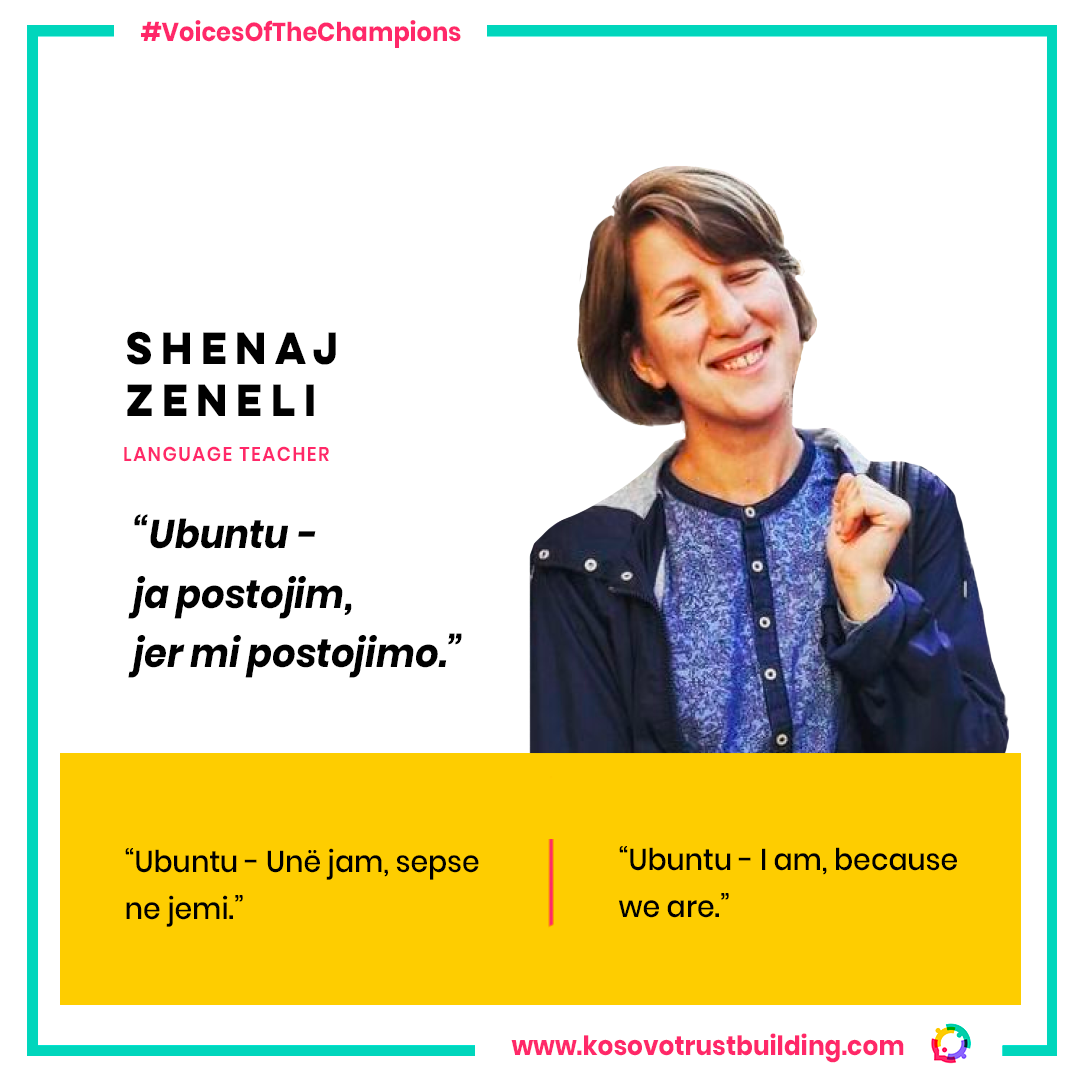Category: Blog Tags:
Introductions to majority of personal stories usually begin with some nicely articulated words or paragraphs. However, I cannot share my story that way.
My childhood basically consisted of modest means, but loads of wishes. I grew up in a Serbian speaking area, and then it was decided for me that I should attend an Albanian speaking education system. The fact that I was obliged to live that way created a gap which continued to develop for quite some time. I felt this contradiction and I wondered about what the word ‘’ideal’’ really meant and which were, in fact, human (im)possibilities to aim for it.
I had a teacher who always acted surprisingly whenever we talked about my Turkish name within my mixed family background and, in addition to it, I attended school in their language. I remember that he used to repeat ‘Kosova Republikë’ very often, probably as an unexplainable way to reinforce his attitude. Although I had various occasions to define to which ethnic group I belonged – it was always difficult for me to introduce myself by using one single identity.
During my high-school years in (Kosovska) Mitrovica, I was actively engaged in various interethnic programs, that made me wonder if we, young people, could aim for positive peace and make an effort to create a new citizenship that would have a stronger basis for identity than ethnicity.
By the end of high school, I actively joined civil society, where my skepticism and the gap were enriched with
understanding and believing in plurality of religions, cultures and opinions that represent the core of my society identity.
Not long ago, I was engaged in a Conflict Transformation Program, in which the root causes of conflict in Kosovo were addressed and it was done by examining the attitudes of the post-conflict society. This experience helped me to develop a theoretical and methodological framework for the study of historical
memory, based on anthropological and interdisciplinary research on collective remembering. Along with different groups from all over the country, we entered a very complex journey by trying to disclose ourselves through our opinions and attitudes towards the field of Social Memory Studies. By trying to reflect on the meanings of
individual and group identity, we went through these theoretical and real-story situations. According to that, I am able to analyze a number of case studies, the ones related to the critical and dominant historical narratives where a lot has emerged by creating analytical lenses, regarding the origin of conflict and its thriving memory culture that connect those identities with the territory.
The whole project was facilitated by an extraordinary human being thanks to whom we had a chance to dig deeper in the past and discuss about the traditionalist concepts and collective silence on the chronological processes on how the new political class of Kosovo creates its own legitimacy.
As a practitioner in the field of conflict transformations, this experience made me understand the key thing – memories are a normal process in life and it is up to us whether we want to collect and keep them for ourselves or selectively distribute them to other people through memory work and a new legacy of a culture of remembrance.
The whole concept of collective memory and memory activism leads a crucial aspect in conflict transformation process and memories do not withstand scientific critique – but we should not really care hence we should not think about it, but we should think with it and live with it (Gillis – Memory and Identity: History of Relationship).




